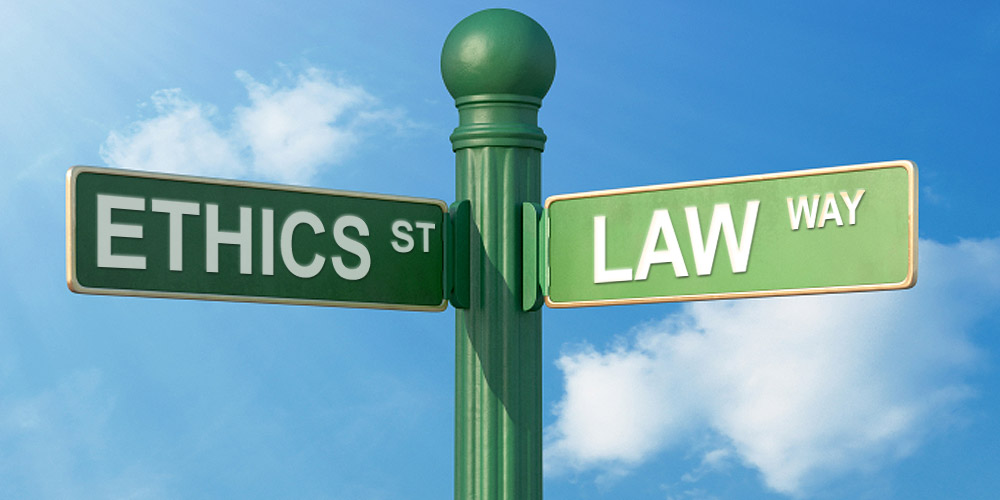Representing clients with diminished capacity can present a challenge for even the most experienced attorney, and every client and every matter is different. Minors of the same age may have vastly different maturity levels and clients suffering from dementia may have varying symptoms and abilities to recall information or make informed decisions. For example, a fourteen-year-old may not be able to legally enter into a contract, but he or she is likely capable of making decisions and expressing opinions regarding with which parent he or she would like to live. In scenarios involving memory loss, a client may exhibit mental impairment one day and be…
-
-
Business Basics: The Duty of Good Faith and Fair Dealing and the Parol Evidence Rule
The duty of good faith and fair dealing is essentially the Golden Rule of Contract law and Business Law: treat others how you want to be treated, and you have a better chance of avoiding litigation. When parties run afoul of this duty, courts notice and hold them accountable. In Blondell v. Ahmed, the North Carolina Court of Appeals remanded a case where it believed the sellers of a home may have breached their duty of good faith and fair dealing under a Listing Agreement with their real estate agent.[1] In March of 2013, the sellers of a house,…
-
Rule 11 Sanctions and Incompetency Proceedings
In Re Cranor began as a straightforward incompetency proceeding, but devolved into a Rule 11 battle between two North Carolina attorneys.[1] The proceeding centered on a woman named Carole Cranor. Because of her early onset dementia, Carole had difficulty preparing meals for herself, suffered dehydration, and sustained a fall due to her diminished mental capacity. As such, she hired a friend and attorney, Harriet Hopkins, to help her choose a long-term care facility and get her affairs in order. Despite a falling out over their mother’s estate some years back, Frank, Carole’s brother, intervened when he realized Ms. Hopkins drafted a durable power of attorney (“DPOA”)…
-
When Heirs Cry: Claiming Prince’s Paternity
The inheritance saga in the wake of Prince’s death continues. Since reportedly dying without a will, potential heirs are coming of the proverbial woodwork and claiming they are entitled to a piece of Prince’s fortune. According to Minnesota law, if there is no will, the deceased’s estate first goes to his spouse. If there is no living spouse, then the estate would go to the deceased’s children. If there are no living children, then the parents inherit the estate. Finally, if no living parents, the estate would pass to the deceased’s parents’ descendants (i.e., the siblings of the deceased). …
-
Discovering Lindley Law, an Interview with Trey Lindley
When founding Lindley Law, my vision was to create a boutique litigation practice known as one of the best in the region for the services we offer, primarily in civil litigation. What separates Lindley Law from other law firms is our dedication to clients, commitment to engaging in meaningful work, and ability to adapt and create solutions for our clients and our business. No law firm exists without clients. We are here to serve them; they aren’t here to serve us. I mean it when I say we hold the needs of our clients paramount. Vigilance is the word…
-
What Happens if You Die Without a Will? Taking a Lesson from Prince
On Tuesday, Prince’s sister, Tyka Nelson, filed an emergency motion in Carver County District Court requesting that the Court appoint a special administrator to gather and protect Prince’s assets. She also claimed that, to the best of her knowledge, no will existed. The assets are estimated to be worth $100 – $500 million and are comprised of real estate holdings, including his Paisley Park Complex outside of Minneapolis; his music catalog, including licensing rights for television, film, and commercials; and album sales. It is estimated that in the week after his death, 2.8 million of his songs – and over 650,000 albums – were sold…
-
The Legal Considerations of Using Drones in Construction Zones
The use of drones is no longer science fiction or limited to combat zones; commercial drones are the way of the future. Drones are used in a host of industries: aerial photography, real estate, agriculture, construction, search and rescue, emergency management, and mining. Even package delivery via drone may soon be a part of our everyday lives. In May of 2014, the Federal Aviation Administration (FAA) began approving petitions for commercial drone usage and those slated for construction purposes comprised roughly 13% of the first 1000 approvals.[1] These drones are not actually building structures or moving materials (yet). Instead,…
-
Death by Alcohol – Who is [More] at Fault?
Last week the North Carolina Court of Appeals reversed the lower court’s decision allowing a case involving alcohol poisoning against a hotel and its staff to go forward.[1] Lisa Davis and her husband Thomas were celebrating their wedding anniversary at the Crown Plaza Resort in October of 2012. They had dinner at Mulligans, the hotel’s restaurant, and spent four and a half hours there. Between the two of them, they consumed twenty-four drinks – drinks the restaurant’s employees served them. Not surprisingly, Lisa was extremely intoxicated. She was unable to walk and unable to stand up after falling, so the hotel employees put her in…
-
Master of Your Domain?: The Nuance of Eminent Domain and Charlotte’s Light Rail
Since before the establishment of the United States, governments have taken the land of private citizens. The issue was so fundamental to the founders of this country they wrote it into the Fifth Amendment of the Constitution which states, in part, “nor shall private property be taken for public use, without just compensation.” The issue of what constitutes a taking, however, is still a matter of dispute in courts across the country, including the North Carolina Court of Appeals. On Tuesday, the Court published an opinion regarding whether a property owner was entitled to just compensation for the loss of visibility to a business due to the construction of a…
-
Jurors: The Social Media Balancing Act
Despite what Hollywood would have their audiences believe, most civil lawsuits settle before ever reaching a jury trial. When cases do make it to a jury, the selection process is very important. In domestic violence cases, defense attorneys aren’t likely to select a juror that suffered through similar circumstances. In civil cases, a plaintiffs’ attorney would likely dismiss a juror who has been a loyal employee of the defendant. It is easy enough to ask the jury basic questions during the selection process or garner simple information from juror questionnaires, but this is the information age and publicly available personal details are out there for…







